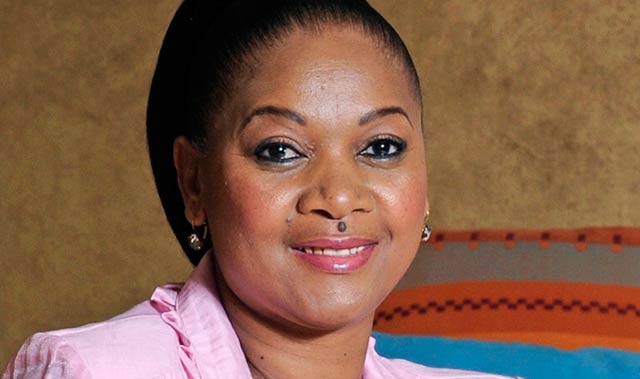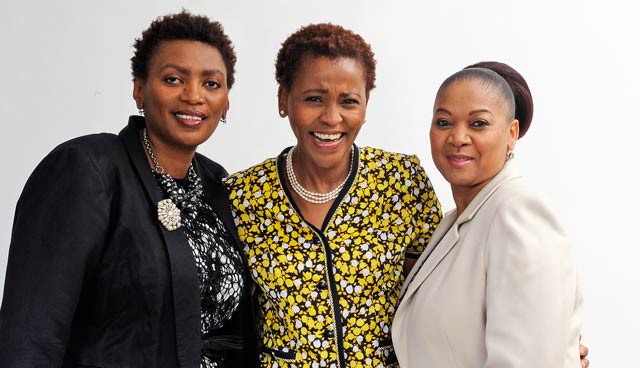
Maggy Sibiya tells me she is relieved when I arrive at her office in Rivonia in Johannesburg without a camera. The ICT-Works chief operating officer says she is a “behind the scenes type of person” and only meets with the media because her PR team tells her to. She declares she’s “nervous” about the interview.
But Sibiya, who is co-owner in ICT-Works — along with CEO Xoliswa Kakana and public sector head Sindile Ncala — should probably get used to being in the spotlight.
Why? Because the all-black- and all-female-owned ICT-Works is starting to gain real attention in South Africa’s IT industry, having won key contracts with clients such as the City of Cape Town and the Coega Industrial Development Zone in Port Elizabeth.
Sibiya was born in Moretele in the old Bophuthatswana — now North West — but grew up in Mpumalanga and Soweto, where she went to school.
She wasn’t sure what she wanted to pursue as a career, but while at school had been encouraged by a nongovernmental organisation called Protec, which actively sought children from disadvantaged backgrounds to get into the technology and engineering fields, to consider a career in IT. Protec specifically targeted children that showed an aptitude for mathematics and science, she says.
Sibiya attended Saturday classes, where she was exposed to the technology and engineering fields. “They took us on vocational trips during school holidays. This opened my eyes to a different world, but I still had no idea what I wanted to do.”
What she did know was that she didn’t want to do something “girly” and wanted to challenge herself.
She eventually decided to study computer data processing, even though at that point she had never touched a computer in her life. “It sounded like something that would challenge me. That’s how I got into the IT industry.”
One thing led to another, and Sibiya joined IBM as an intern in the late 1980s. She was able to move out of programming, which she didn’t enjoy, and into a broader information systems and project management role. She gained invaluable experience.
She spent eight years at IBM, before taking up a role at Standard Bank looking after the portfolio of commercial banking systems for Africa. It was at the bank that she met business partner Ncala. “We were the only two black female senior managers so we kind of stuck with each other.”
Eventually, after a few years in the banking environment, they joined Kakana at ICT-Works, where she has held many roles since 2005.
“We went after opportunities where doors opened, and that was mostly in the public sector at first,” she recalls. “As we grew and gained confidence in the industry, we started getting business from the private sector. MTN was one of our first clients.”
A big break came when ICT-Works partnered with Deloitte for a project at the Coega Industrial Development Zone in Port Elizabeth.
“We were an Oracle partner, doing a lot of advisory work. Coega had a vision of how they wanted to see real participation of a [black economic empowerment] partner. The contract was structured so that halfway through it, after 18 months, ICT-Works took the lead from Deloitte.”

The project required an end-to-end implementation of an Oracle enterprise resource planning system, which included being a strategic implementation partner to Coega, looking after all of their projects. “ICT-Works stepped up to the plate and a year and a half later we took over. Coega is still our client. It was really our launching pad.”
Today, ICT-Works, which employs over 100 permanent staff, offers project management-type IT work to a range of clients in the public and private sectors. It remains an Oracle partner, only now it has “platinum” status, the highest level Oracle affords its implementation partners.
Its flagship project now is an automated — and award-winning — fare collection system developed for the MyCiTi bus network in Cape Town.
It developed an end-to-end project for issuing EuroPay, MasterCard and Visa-compliant cards to commuters to implementing gates for access into the stations. It’s built the system used to collect fares on the buses and runs the back office, reconciling revenue back into the city’s SAP system.
“The first phase is the bus rapid transport network, but the vision for the City of Cape Town is for an integrated rapid transport system.”
Another big project win was with national government, for the supply chain component of its huge integrated financial management system. “On the back of that, we built a solid supply chain core, with specialised skills. The government of Kenya went out on tender for a similar solution, and we won that work.”
Sibiya says ICT-Works focuses a lot of attention on trying to bring female skills into the traditionally male-dominated IT sector. More than half its staff are women, and it works with tertiary education institutions to help bring more women into the sector.
Have the three women leading the company considered selling? “There are always people knocking at the door,” says Sibiya. “One never knows when the right opportunity will come along. Right now, though, we’re still trying to grow the business.”
When not focusing on the IT world, Sibiya and her husband of the past 23 years spend their time on church work. Through Soweto’s Zoé Bible Church, which has branches around the country, she does active work in Ivory Park, Olievenhoutbosch and, more recently, in the Midrand area. — © 2015 NewsCentral Media




